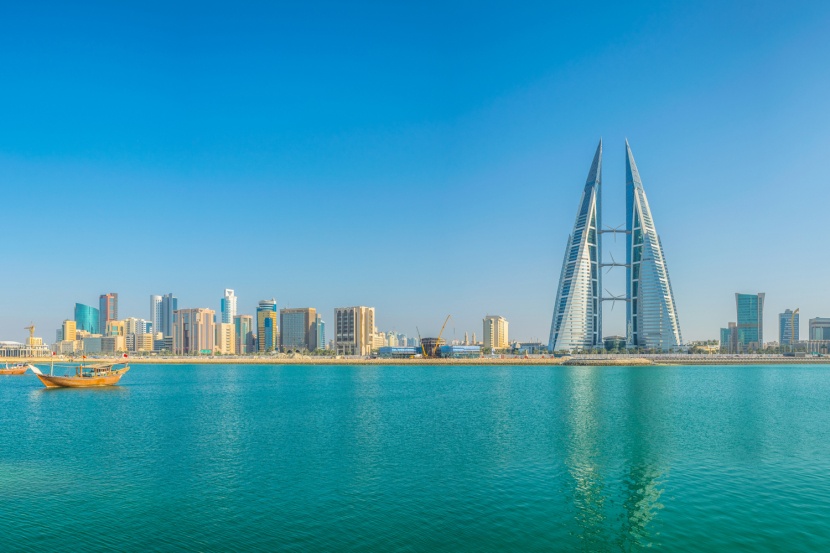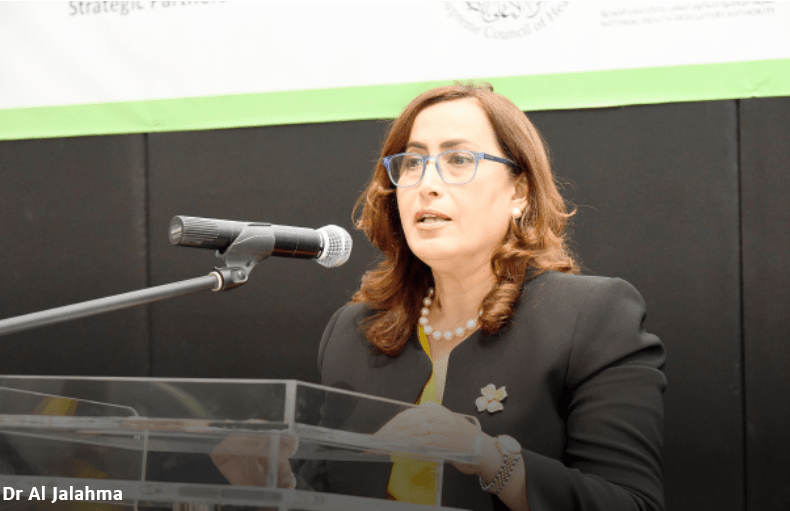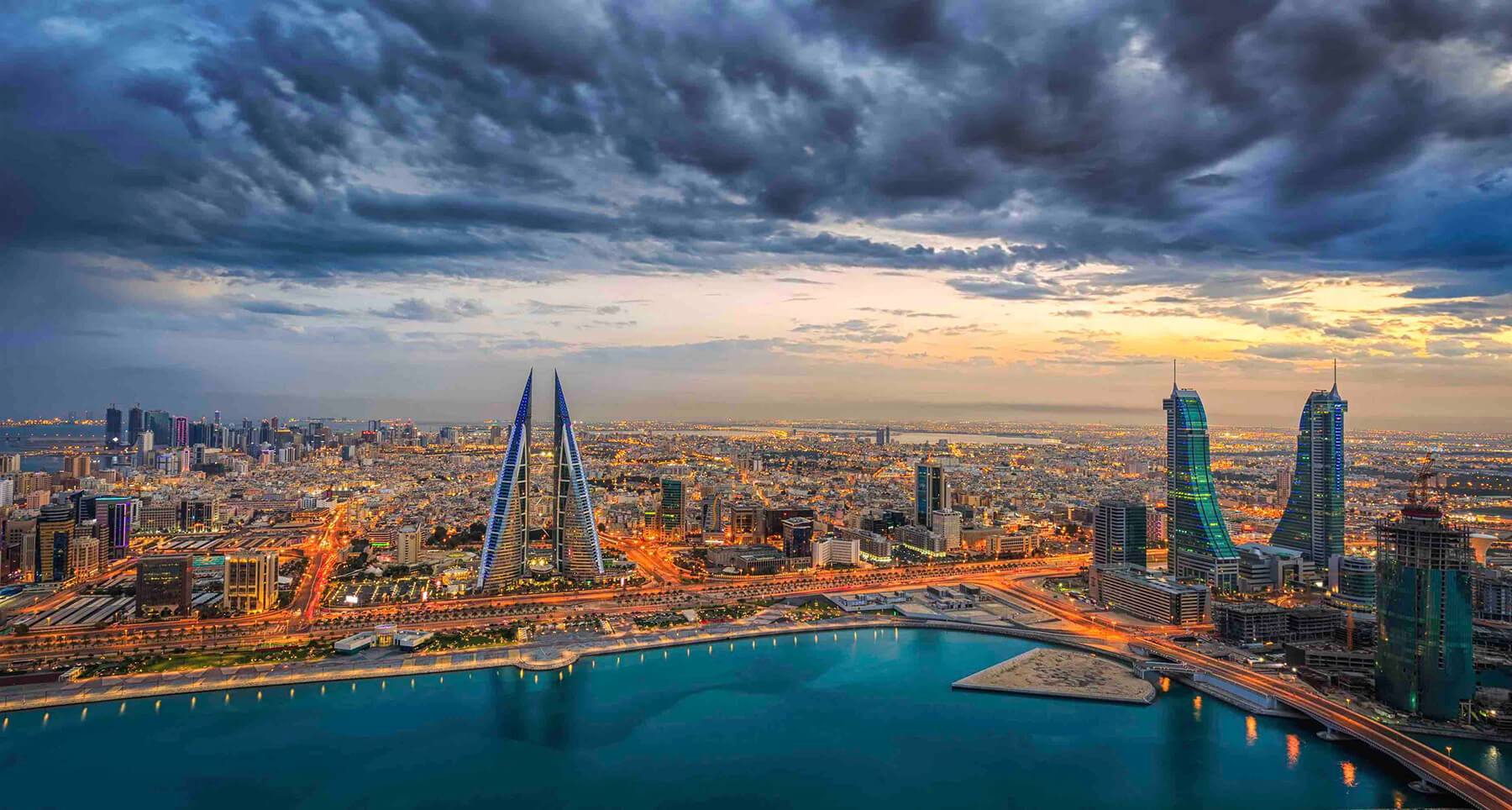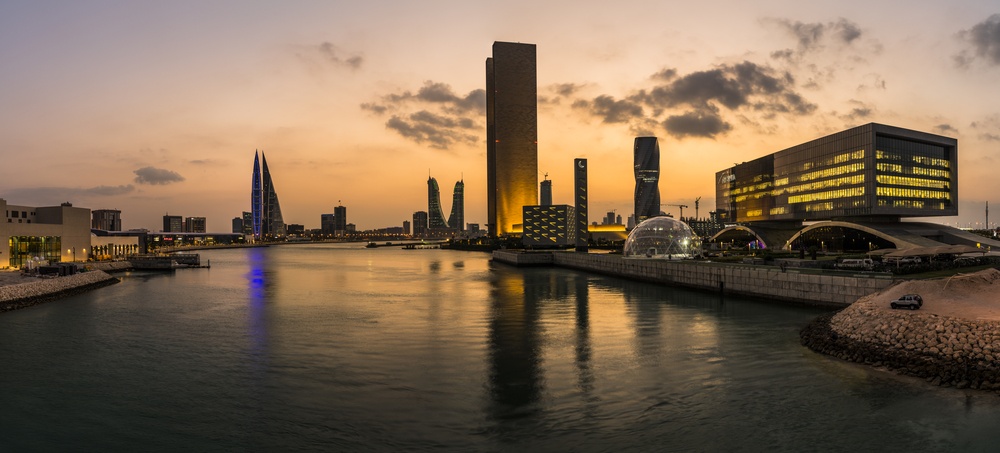Originally published by Arab Banker
Bahrain has been a successful banking centre for decades, but technology is changing the financial landscape and transforming customers’ expectations from their financial providers. Determined to retain its key position in regional finance, Bahrain is incubating new technology-based financial services in its FinTech Bay. Arab Banker asked David Parker, a Board Member of Bahrain FinTech Bay, to describe Bahrain’s fintech infrastructure and explain what has been achieved so far.
ARAB BANKER: What happens in Bahrain FinTech Bay?
DAVID PARKER: Bahrain FinTech Bay (BFB) is dedicated to enabling, fostering and ultimately building a complete fintech ecosystem. We have partnered with governmental bodies, financial institutions, corporates, consultancies, universities, associations and start-ups to bring the full spectrum of stakeholders together. In 2018, our year of launch, we were internationally recognised as “MENA FinTech Hub of the Year”. We champion the region’s most cutting-edge fintech companies and promising entrepreneurs. Our coworking space is home to a vibrant fintech ecosystem, strategically located to be the ideal platform to base regional headquarters.
We are based in the Arcapita Building in the centre of Manama, close to the Central Bank of Bahrain (CBB) and many of the leading banks and businesses. We are currently hosting over 40 companies. There is much more to it than the physical space. BFB is integrated into Bahrain’s economic development plans and for that reason the Government of Bahrain, through various programmes, is actively supporting businesses that operate out of BFB.
What is the profile of the companies who are working in Bahrain FinTech Bay?
We are proud to call ourselves home to over 40 of the most innovative fintech companies in the MENA region from diverse fields including big data, cryptocurrency exchanges and cryptoassets, robo advisors, payments and more. The companies range from large traditional financial services firms who are developing the fintech side of their business – American Express is an example – to new cryptocurrency start-ups like ‘Rain’ and the crowd-funding technology developer Beehive. The current residents are from a wide variety of countries – 68% are from the GCC, 22% European, and 6% Asian, with a small percentage from North America and South Africa. Additionally, 13 companies based in BFB are currently in the CBB’s Regulatory Sandbox, including four regional headquarters and two innovation labs.
Who owns Bahrain FinTech Bay?
BFB is a public-private partnership between the Bahrain Economic Development Board (EDB) and FinTech Consortium. BFB’s founding partners represent a broad cross-section of Bahraini and global financial services and technology industry leaders like Al Baraka, American Express and Microsoft. The site itself is operated by FinTech Consortium, which is a Singapore-based group that manages FinTech Bays in Silicon Valley and Detroit, as well as Bahrain and Singapore. Bahrain FinTech Bay is governed by a Board of Directors led by Khalid al-Rumaihi, who is the Chief Executive of the Bahrain EDB. Other Board members include Maissan al-Maskati, who is the CEO of the FinTech Consortium in Detroit and Silicon Valley; and Gerben Visser, who founded the FinTech Consortium and is also the Managing Partner of InQvest Partners, a venture capital firm dedicated to fintech. Khalid Saad, who previously worked as a manager in Business Development, Financial Services, at the EDB, is currently the CEO of BFB.
How does FinTech Bay fit into Bahrain’s broader economic strategy?
That is a very important question that goes to the heart of why we set up BFB and also why we think it is going to be a great success. Bahrain pioneered oil production in the Middle East but, in contrast to most of our neighbours, our reserves were smaller. As a result, Bahrain diversified its economy into other sectors, especially those in which Bahrain has a competitive advantage. One result was that Bahrain established itself as a regional financial centre. In the 1970s, we developed a thriving offshore banking industry, hosting some of the biggest banks in the Middle East and offering a well-regulated environment through which some of the biggest banks in the world conducted their regional business. As financial markets in other Gulf countries opened up, the need for an offshore centre declined, so Bahrain moved into new areas, such as Islamic finance and insurance. We built first-class infrastructure – such as you see in the area around our own building and further down the Corniche at Bahrain Financial Harbour. We also ensured that financial sector regulation, led by the Central Bank of Bahrain, kept up with international banking standards through initiatives such as the Personal Data Protection Law and the Model Law on Electronic Transferable Records. Bahrain’s fintech strategy has been led by Team Bahrain, which is a unified effort by the government, and is part of a package of initiatives in other sectors such as logistics or tourism, as well as hotels and mixed-use real estate projects.
What can Bahrain FinTech Bay offer that other fintech initiatives in the GCC and beyond cannot?
First of all, it is very easy to set up a business in Bahrain. Bahrain has always had a ‘pro-business’ approach and this is very evident in our attitude to innovators, entrepreneurs and fintech. If someone is interested in basing themselves in Bahrain FinTech Bay in order to develop a new idea, then they can seek help from the EDB. Our Team Bahrain approach ensures that Bahrain’s agile government comes together to solve problems and support the business environment to ensure that companies thrive. The EDB also supports companies through three stages. The first stage is guidance, which offers advice and information to support the decision-making process. The second is facilitation, which provides access to grants and assistance with registration. The third stage is aftercare, which entails ongoing support for business expansion. The Bahrain government is also putting its money where its mouth is when it comes to supporting young technology firms. Tamkeen, the Labour Fund, has several funding programmes through which it can subsidise companies that want to up-skill their workers, and it offers subsidised access to cloud services, which underpin many of the new fintech products and services. Another factor that differentiates Bahrain is that Amazon Web Services chose Bahrain to open their first regional data hyperscale centre to service the wider MENA region. This is a big vote of confidence in Bahrain, from one of the world’s biggest and most successful technology firms, and it will have an impact on the growth of entrepreneurship in Bahrain.
What is the role of the Central Bank of Bahrain in overseeing new financial service products that originate in the FinTech Bay?
The role of the Central Bank should not be under-estimated. The CBB has created a new fintech unit to oversee the fintech sector and, as part of this, it has developed a Regulatory Sandbox. The CBB was also highly supportive in the launch of BFB, and its fintech unit works closely with BFB. This includes having a staff member present at BFB to support and nurture emerging businesses that are looking to innovate and test their products. The CBB recognises the importance of striking the right balance between protecting the financial system and individual customers, and encouraging innovation and growth. It has responded by publishing regulations on new areas of financial activity so that they can be offered and used in Bahrain, but in a properly supervised environment. For example, in February this year, the CBB published a directive concerning trading, dealing, advisory services and portfolio management of cryptoassets. Last year it published rules on open banking, and in 2017 it published rules on crowdfunding (which were updated last year).
How does Bahrain’s Regulatory Sandbox work?
The Central Bank established the region’s first on-shore Regulatory Sandbox in 2017. The Sandbox provides a regulatory framework within which new financial products can be developed and then tested under tightly controlled regulatory conditions. At the time of writing, the CBB listed 31 firms that had received authorisation to join the Sandbox. Some firms have already graduated from the Sandbox. For example, the first graduate was Tarabut Gateway, which developed an open banking platform to enable customers to safely share their account information and payment history with other banks and institutions. As a result, those customers will be able to view all of their financial information on a single mobile application or on-line banking service. Tarabut is now a licensed provider of open banking technology in Bahrain and it recently signed an agreement to install that technology at National Bank of Bahrain. ‘Rain’, which is developing the region’s first Shari’ahcompliant cryptocurrency exchange graduated from the Sandbox earlier this year and, as I am speaking, it is in the 28 GCC BANKING ARAB BANKER final stages of its application process for a full license to operate. This is a very exciting development and not just for Bahrain – we will have a cryptocurrency exchange that is not only Shari’ah-compliant, but that has also been reviewed by the Central Bank of Bahrain and so will be subject to the capital standards, cybersecurity standards, and banking compliance standards of one of the most respected central banks in the Middle East.
If you look ten years into the future, what do you think will be happening in Bahrain’s FinTech Bay?
The challenge for all fintech centres is to attract people with good ideas and provide them with an environment in which they can develop those ideas and turn them into profitable products. It’s early days for us, but so far we’ve been meeting those challenges. Local, regional and international firms are basing themselves here, and a reasonable number are transitioning into commercial activity. The products that will be developed in our FinTech Bay will be driven by how the fintech business develops globally in the years ahead. Right now, there is a big focus on cryptoassets and crowdfunding. In a few years’ time, it might be something else, but whatever that ‘something’ is, Bahrain will be providing a business-friendly environment, international-standard financial regulations , and financial support for ideas that will strengthen the local labour market, either through creating jobs or ‘up-skilling’ existing workers. Bahrain is not embracing fintech because it’s trendy, or a hot topic for investors right now. We’ve been a successful financial centre for decades and we intend to remain a successful financial centre. Financial firms, and their customers, want to transition from old-style banking into new financial services that are rooted in the latest technology and based on open, decentralised platforms. Bahrain FinTech Bay is not just providing a venue where innovators can develop those financial services for the future, we are actively promoting those financial services through our Central Bank, our Economic Development Board and our Labour Fund. So, in ten years’ time, I expect to see a lot more firms operating out of BFB but, more importantly, I expect to see a lot of firms outside the Bay – in Manama, in the Gulf, in Singapore, the US – who have tried and tested their products or services in Bahrain and are profitably selling to the international financial community.
© Arab Banker 2019 – arab-bankers.co.uk
























